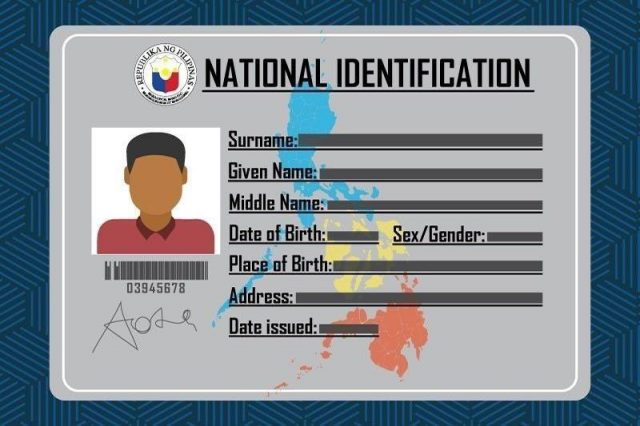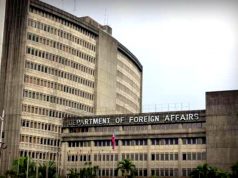
Registrants of the national ID system expressed disagreement with President Ferdinand Marcos Jr.’s claim during his second State of the Nation Address that the identification system “will fundamentally change the lives of every Filipino.”
In response to Marcos’ remark, some individuals reported that they are still awaiting their national IDs despite more than a year of registration.
“I personally still don’t have my National ID…Last year pa ako nag-register,” a Twitter user said.
“2 years has passed, never dumating national id ko,” a registrant claimed.
Some of them resorted to having their identification cards printed on A4 bond papers to serve as their temporary IDs.
The Philippine Statistic Authority, the implementing agency of the national ID, temporarily introduced paper Philippine Identification System (PhilSys) cards, offering equivalent advantages for swift and smooth transactions in accessing financial and social protection services that require proof of identity.
However, some citizens reported that certain companies or establishments are not accepting or recognizing these temporary IDs and the actual National IDs. Others also claimed that their photos in the ID are blurred.
“How will it change lives? Eh ayaw nga tanggapin sa bangko,” a Twitter user asked.
“It doesn’t even work properly like pang-verify sa Gcash or to register a sim card. Basically, a useless piece of paper,” another tweeted.
“The ID [is not even considered a] primary valid ID on some sectors kasi we do not have our signatures eh,” a Twitter user also said.
“The way this type of ‘id’ is not valid cause its paper and seem sketchy,” an online user commented.
Former president Rodrigo Duterte signed into law Republic Act 11055 or the Philippine Identification System Act, in August 2018, that aims to establish a single national identification system for all citizens and resident aliens.
According to the law, PhilSys will provide a valid proof of identity “as a means of simplifying public and private transactions, and shall be a social and economic platform that promotes seamless social service delivery and strengthens financial inclusion for both public and private services.”
The implementation aimed to produce 116 million cards from 2020 to 2023, with a budget of P3.4 billion, as per the memorandum of agreement between Bangko Sentral ng Pilipinas and PSA.
In 2021, however, the Commission on Audit’s report indicates that the BSP and its contractor failed to deliver the required number of ID cards for that year. It said that the contractor only managed to deliver 27.36 million or 76% of the target number for 2021.
The BSP cited COVID-19 pandemic restrictions and technical issues as factors why it was unable to deliver.
The delayed national ID printing and delivery persisted until 2023, prompting Senate Minority Leader Aquilino “Koko” Pimentel III to call for an investigation into the delay.
The issue faced by the national ID system was not mentioned by Marcos in his second SONA.
Meanwhile, early this year, the PSA issued more than 50 million physical and digital versions of the Philippine identification (PhilID) or national ID to registered Filipinos, marking a significant step toward strengthening financial inclusion and facilitating transactions requiring proof of identity.
The PhilID and ePhilID are being utilized for various services, and efforts are underway to ensure delivery to all registered individuals and eliminate duplicates in social protection programs. —Intern, Sheila May Balagan









